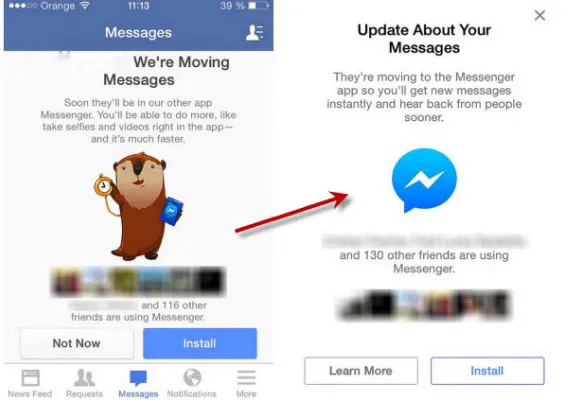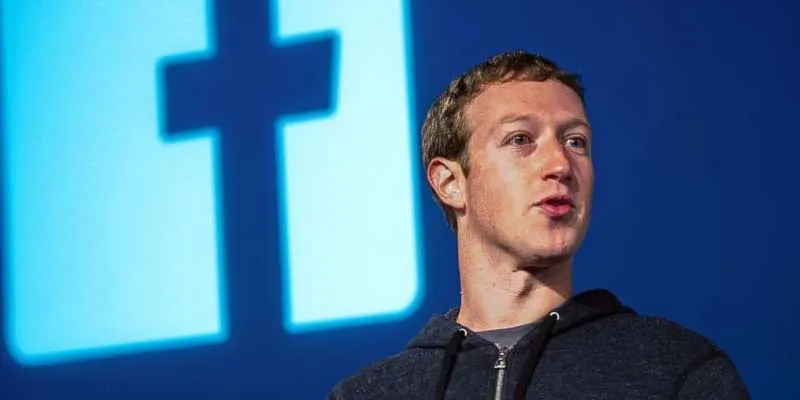Despite backlash, Facebook Messenger grows to 500 million active monthly users
Ramya Venugopal

Tuesday November 11, 2014 , 4 min Read
Mark Zuckerberg’s gamble to force users to download a separate app to send messages appears to have paid off with FaceBook’s Messenger reaching 500 million monthly active users in November. This means a little under half of Facebook’s 1.35 billion users have adopted the app, a clear sign of Zuckerberg and his team’s global influence.

The numbers are even more staggering if you see that eight months ago, the number of monthly active users was barely 200 million.
Messaging has become an integral part of our daily lives and we have seen that with the popularity of the various chat apps on the stores and the number of start ups getting into the business. It’s no surprise that Facebook began its unbundling strategy with its standalone Messenger app, back in 2011.
For a business that is built around friend networks, it is clear why Messenger is Facebook’s first big initiative. That the development team pushes updates to the app every two weeks to improve speed and reliability also shows how important messaging is for its overall business. Messenger has been able to keep up with expectations of users by enabling stickers, chats with groups and free calls as value additions.
With these dazzling new numbers, Facebook now owns four of the most widely used social products in the world between Messenger (500 million users), Facebook (1.35 billion users), WhatsApp (600 million users) and Instagram (200 million users). Though there might be a huge overlap of users using these products, but Facebook’s acquired a huge chunk of user-base for its ads to be displayed.
Why force?
Most of us would remember the irritation we felt three months ago when you tried opening a message on the Facebook app only to be told that the messages have been migrated to the Messenger app, which we would need to download.
Users headed to the Android Playstore and iOS App store to download Messenger but found other ways to vent their anger, with angry reviews and blog posts criticizing Facebook’s unilateral move.
To clear the air, Mark Zuckerberg resorted to a Q&A on Facebook with his followers where he said the intention was to provide users better experience for messaging.
Asking everyone in our community to install a new app is a big ask. I appreciate that was work and required friction. We wanted to do this because we believe that this is a better experience. Messaging is becoming increasingly important. On mobile, each app can only focus on doing one thing well, we think.

Facebook today has become a host to tons of apps, games and other features failing to give a rich experience to users for communicating with their friends online. This was one of compelling reasons for Facebook to unbundle Messenger from the original Facebook app.
Explaining the thinking behind the decision further, he said
10 billion messages are sent per day, but in order to get to it you had to wait for the app to load and go to a separate tab. We saw that the top messaging apps people were using were their own app. These apps are those that are fast and just focused on messaging. You’re probably messaging people 15 times per day. Having to go into an app and take a bunch of steps to get to message is a lot of friction.
What’s future of Messenger?
This clearly means there’s a lot more to be expected from this app, given the spotlight under which Facebook has placed it. And one move by Zuckerberg may give us a hint.
He recently hired David Marcus from PayPal to run Messenger. An experienced strategist from a money transferring wallet service to lead a communication-focused application?
To us, it seems Mark definitely envisions Messenger as an app that would take communications a step further and also allow users to perform financial transactions also. Going forward, transferring money is going to be indeed invisible if this bet works out well.
Believe it or not, Facebook is genuinely changing the way we interact today and has massive plans for the future already in place. We are eagerly waiting to see what Zuckerberg has in store for us next.
Would you use Messenger to transfer funds with your friends and family?






